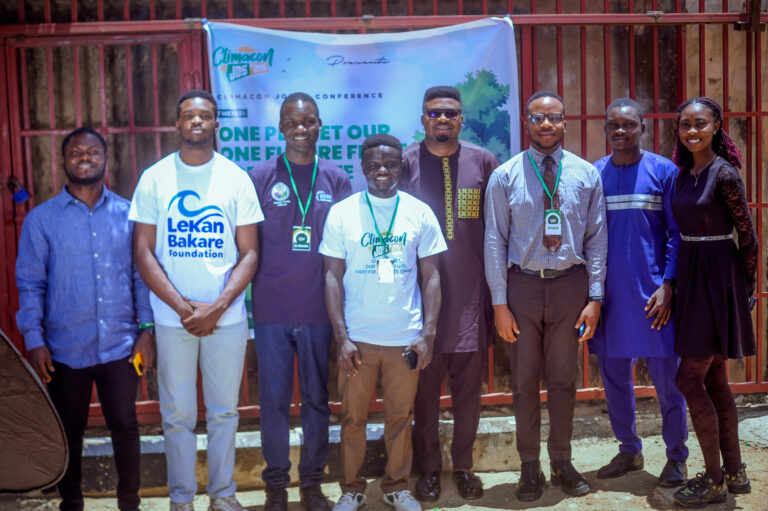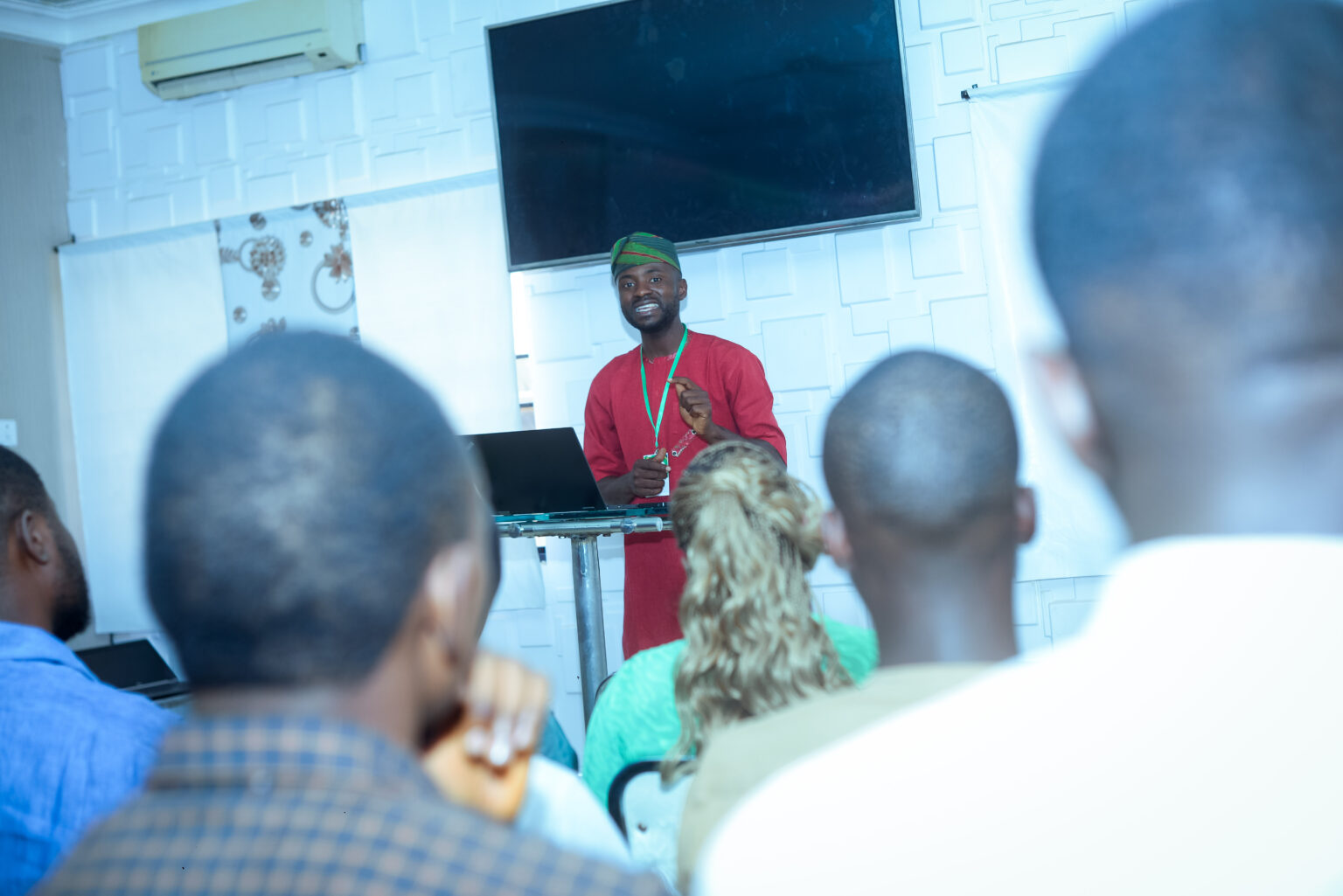Amid the vibrant hum of Jos city life, a long-overdue conversation finally found its place. Last weekend, a wave of fresh energy filled the air as young people gathered for the first-ever ClimaCon Jos’25, a youth-led climate conference. Convened by Amb. Itse Collins Arin alongside co-convener Engr. Kitgak Simon, the 5-hour event wasn’t just a meeting, it was a movement that signalled the start of serious youth-led climate advocacy in the region.

Understanding the Problem: Data, Food, and Climate Realities Mr. Charles Chiwendu Nwaeze, founder of CircleTeam Foundation and Global Youth Ambassador for TheirWorld, opened the event with a deep dive into the climate crisis. He painted a sobering picture of Nigeria’s vulnerability, especially among farming communities.
“Jos records an annual temperature rise of 0.011°C and a 3mm decrease in rainfall,” he shared, emphasizing the gradual but dangerous shift in local weather patterns.

Caption: ClimaCon Jos’25
He pointed to Nigeria’s key challenges in fighting climate change to be: inadequate funding, low public awareness, and poor infrastructure. Yet, he offered hope through solutions like climate-smart agriculture, transitioning to compressed natural gas (CNG) buses, and scaling up investments in renewable energy.
Climate, Food, Health, and Energy- The Realities
Taking the stage next was Mr. Zeenret Zamani, Executive Director of Murya Na Environmental Sustainability and Development Initiative. With vivid storytelling and heartfelt passion, he connected the climate crisis to everyday realities, touching on food, energy, and health.
“Imagine someone like me who loves yam, and suddenly, it becomes scarce. That’s the path we’re headed if we don’t act,” he warned.
From oil spills in the Niger Delta affecting fish like oko and ayakata, to gas flaring in Rivers and Abia States, communities there are exposed to toxic air, and constant coughing is now the norm, indeed the connection between environment and health became glaring.
“Our hospitals can’t function without electricity. Our food chain breaks down. Our economy suffers. And yet, we’ve barely tapped into solar or wind energy,” he stressed.
He called for climate justice, not just token efforts like switching bulbs, but deep, equitable changes in how decisions are made and who gets to make them.
“Dams like Lamingo are becoming unpredictable, too high at times, too low when we need water the most. If we keep mining irresponsibly and ignoring our water systems, places like Tudun Wada may soon run dry.”
He also highlighted the comeback of diseases like cholera and typhoid in cities like Lagos, attributing it to deteriorating environmental health conditions. “Climate change is not abstract. It is personal. And it is urgent.”
Science and Solutions: The Global and Local Link
Joining the event virtually was Dr. Salamatu J. Fada, a conservation biologist, educator, and climate action specialist. Her words brought a global lens to local challenges.
“Floods, droughts, wildfires, and erosion, they’re not random. They’re the result of human actions,” she explained, referring to data from the Intergovernmental Panel on Climate Change (IPCC).
She stated that while Africa contributes minimally to global emissions, it bears a disproportionate share of the consequences due to weak infrastructure, limited funding, and minimal climate education.
“Despite low emissions, our people suffer the most from flooding, erosion, heatwaves, and poor crop yields,” she said. But she reminded the audience that climate change is not just about the statistics mentioned or big reports, it’s about real people, you and I.
“It affects lives, homes, health, and access to essentials. That’s why local government engagement and community participation are not optional; they’re urgently critical.”
Dr. Fada stressed that for any intervention to be sustainable, communities must be involved from start to finish, from designing solutions to implementing and evaluating them. “Real impact happens when scientists, NGOs, and government institutions co-create with those most affected.”
Key Takeaways: From Conversation to Action
As the event drew to a close, every speaker came to the conclusion that everyone has a role to play. Whether it’s through community awareness or national policy reform, climate action must flow from the grassroots up and from the top down.
Youth were reminded that they don’t need to be wealthy to make a difference. All they need is the will to start, to learn, to advocate, and to act.
Among the actionable takeaways:
Local solutions must feed into national and global efforts
Climate justice involves equity, access, and community-centered interventions Sustainable change is possible when we co-design with affected communities We must demand stronger policies, greener technologies, and cleaner systems.
The Road Ahead
ClimaCon Jos’25 is only the beginning. It has quickened the curiosity in the youths in attendance to key into long-term climate advocacy and real change.
The message was clear: Climate change is not a distant issue; it is here, it is now, and it is personal.


